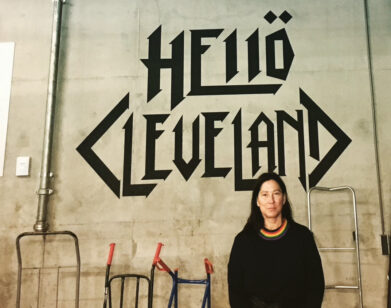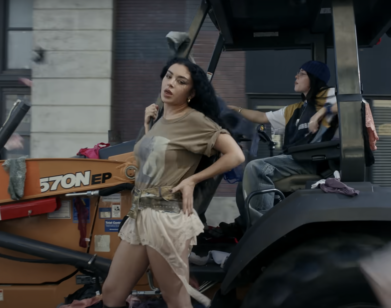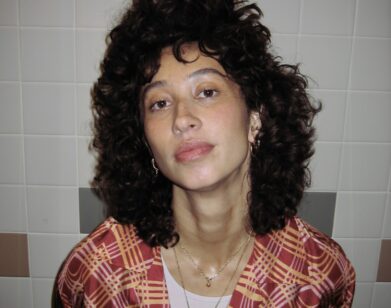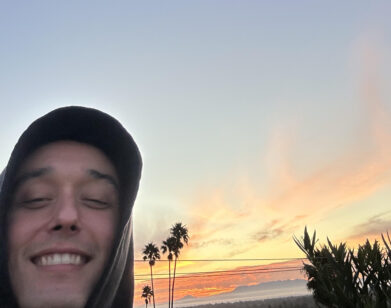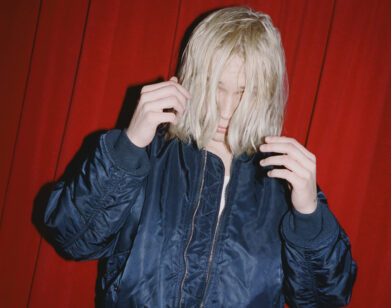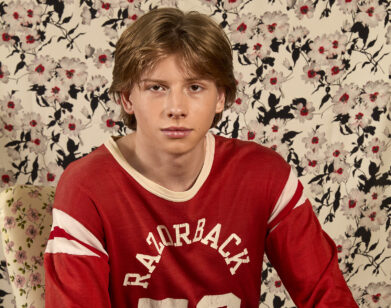Allen Stone is Not Unaware
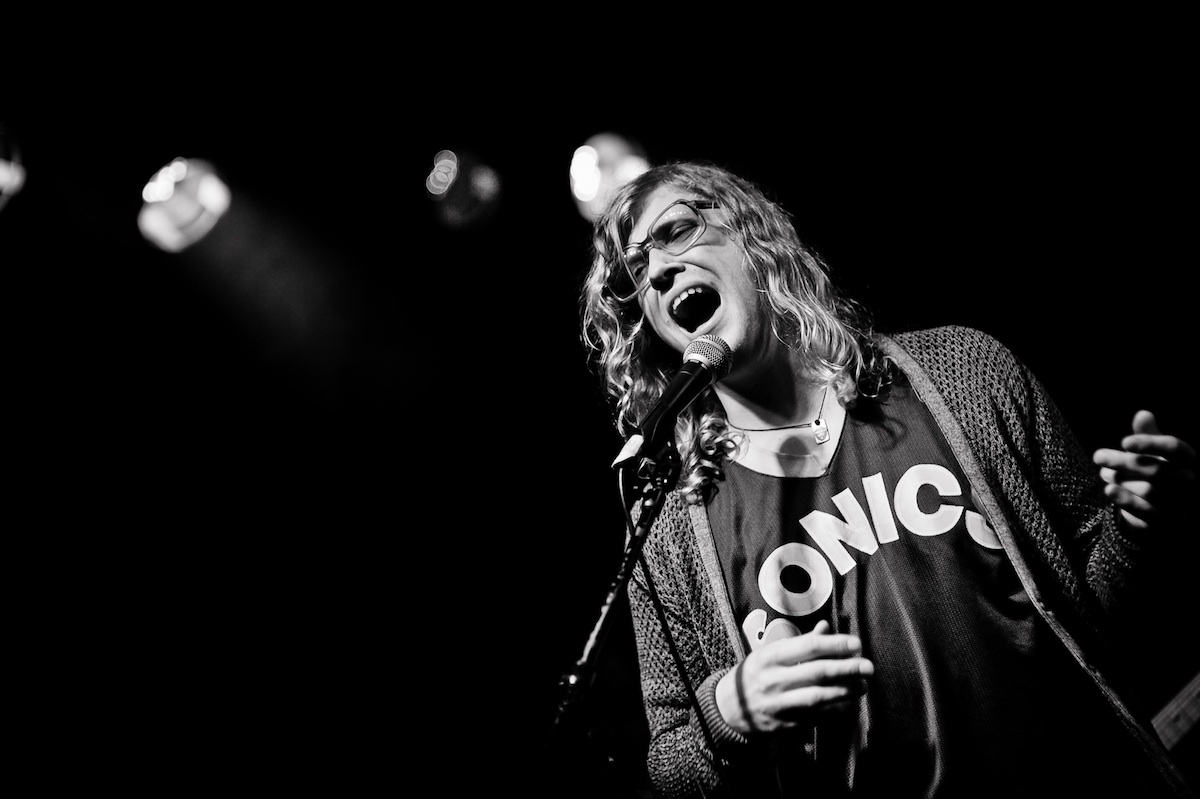
ABOVE: ALLEN STONE. IMAGE COURTESY OF JASON TANG
With hippie looks—he wears a giant drug rug/poncho onstage when he performs—and curly blond locks, you’d never guess that the most soulful, pitch-perfect voice in new American music would come out of Allen Stone. Until it does.
Stone’s journey is one of dedication. His lyrics are honest, his story is personal and he’ll even tell you that he started out broke and touring not knowing how he was really going to make it. As the son of a preacher, Stone got his start singing in church. He didn’t discover soul music until his teenage years, when he was captured by the music of the ’60s and ’70s; and his self-titled debut album introduces a talent that recalls Marvin Gaye and Bill Withers. He also recently posted a photo with Sharon Jones—alluding, we hope, to a possible collaboration between the two.
Seeing Stone perform live is a privilege; his performances are dynamic and powerful, and he spends most of his concert interacting with the audience. In advance of his show in Los Angeles tonight, we spoke with Allen Stone about his determination to become a musician, his addiction to social media, and his love for Mama Sharon.
ILANA KAPLAN: Your show last night was unreal.
ALLEN STONE: You came to the Highline [Ballroom] last night?
KAPLAN: Yeah, I did!
STONE: Oh, wonderful! Thanks so much for coming.
KAPLAN: Thanks for putting on an amazing show. You grew up in a religious household. How did that translate into creating soul music?
STONE: I think that the most apparent way it translated was my feel for music. I think there are a lot of pathways to get to soul music, but I think one path is the feel of it. I grew up singing from an early age in church and really, I think, learned to connect emotionally with songs through that. I think that’s what I’m able to go back to now when I sing live. It’s a very therapeutic, emotional, and spiritual experience for me, getting to sing. I sing all day, every day. It’s probably loosely based in my connection growing up with it like I did.
KAPLAN: What’s the first soul record you listened to?
STONE: The first soul record that I ever got into was Innervisions by Stevie Wonder.
KAPLAN: Has he had a big impact on your singing and songwriting?
STONE: Yeah. He’s my favorite singer and favorite writer. I would aspire to be half of what Stevie Wonder is as a musician and as a human being. He’s definitely the biggest influence on me personally. As far as the way I sing and the notes I sing, I corner a lot of that from Stevie Wonder.
KAPLAN: Your voice doesn’t necessarily match your face. What’s the strangest reaction you’ve ever gotten when people hear your voice and you’re this blond, white guy, for lack of better words?
STONE: I haven’t gotten anything offensive or anything.
KAPLAN: Oh no! I didn’t mean that. I meant just surprising.
STONE: It’s typically that kind of dialogue, like, “Man, you don’t look like you sound” or, “You don’t sound how you look.” Soul music has always been a very traditionally an African-American genre of music, and it’s always been a very sexy genre of music. There’s not too much grunge and dirt in soul music. I’m from the backwoods of the Northwest. I grew up in the forest. I grew up playing outdoors, skiing and hunting. I’m not a slicked-back, Motown, Detroit dude. I didn’t grow up in the city. Luckily, I found soul music, and that was what I could aim my passion at. I never found the metrosexual. Maybe a little bit when I was in high school. I think we’re all trying to find ourselves at that point. Shit, I’m still trying to find myself. We all go on that path. We’re different today then we were yesterday.
KAPLAN: That’s very true. Last night you had played a song that you prefaced by telling the audience that there was a point in your life when you were completely broke, touring, and didn’t know where to go from there. What kept you determined to make it as a musician?
STONE: I think it was kind of a lot of foolish pride. Foolish pride got me into doing music.
KAPLAN: I don’t think it’s foolish. I think it’s fair to have pride in your work.
STONE: I appreciate that, but I’m surrounded by incredible musicians like Magnus Tingsek, who is opening all 60 dates of this tour. I haven’t listened to anybody’s music more than his in the last two years of my life. I think he’s a genius and one of the greatest songwriters and musicians around today—and he’s opening for me! I think it’s kind of foolish to feel an entitlement towards success, like, “I know if I just keep on, then I’ll be successful.” For me, that’s what it was. It was me being like I’m going to prove myself to Seattle or Chewelah where I grew up and the people around me that I didn’t waste five years of my life touring around, being broke and eating pizza. Pride played a vital role in me not hanging in that. I remember I called my dad one time too, just sobbing, saying it was so hard. My dad was like “it ain’t worth it if it’s not hard.” It’s pointless if it’s not difficult. I think it was a combination of a lot of things. It was also a combination of things starting to look up. I kept singing because it was the only real way I could make money other than waiting tables or something. I was still playing in Seattle quite often, and those shows started to grow. More people started coming out, so we had to move to bigger venues. So, you start seeing progression. I started seeing positive movement. I think that helped a lot too.
KAPLAN: I think it resonates a lot when a musician can describe how and why they continued on their journey. So, I recently saw you post a photo of you and Sharon Jones together. Is there a collaboration in the works?
STONE: Oh man! I would die. I would die if I got to collaborate with Mama Sharon. She is very, very dear to my heart. The Dap Kings are one of the greatest shows I’ve ever seen. Those guys are incredible alone, and then when you add Sharon to the mix… I’ve got a lot of learning to do. I hope so! I hope I get to sing with Sharon someday. We did a tour together for this thing called “Live from Daryl’s House.” It was Daryl Hall from Hall and Oates, me and Sharon. We all sang together on stage. We sang some of Daryl’s songs, I got to sing some of Sharon’s songs. Sharon sang songs of mine and Daryl sang songs. It was this round of us all singing together. To a degree, I have collaborated with her at least in a live setting. She’s the queen, man.
KAPLAN: With your album out, how much of it is autobiographical and how much has been observational?
STONE: Most of it is really introspective of myself, but then there’s a song called “Unaware” on the record that’s more of a political rant. There’s another song called “Contact High,” which is about my personal struggle about living in the moment and more precisely my struggle with social media: putting my phone down and focusing on the people in front of me rather than the 800 people online. That one is very autobiographical. I’m attempting to leave it alone. It’s such a major part of what I do and it’s been such a useful tool for where I am today. I catch myself just forgetting really, really special moments and someone reminding me of them. I think it’s just because I’m potentially just always distracted. It’s sad. If I don’t have my phone on me…
KAPLAN: You feel naked!
STONE: You feel naked! Like how am I going to get here? How am I going to get there? It’s very scary. It’s very scary for one, because I think it’s the next step in evolution is man’s collaboration and coinciding physically with technology. I see it already. I see it with myself. I leave my phone and my phone is about to die and I’m frantically looking for a charger.
KAPLAN: It’s like, “Who am I becoming?”
STONE: It really is crazy, it really is crazy!
ALLEN STONE IS OUT NOW. STONE WILL BE PLAYING WITH YUNA AT THE HENRY FORD THEATRE IN LOS ANGELES TONIGHT. FOR MORE ON THE ARTIST, VISIT HIS WEBSITE.

